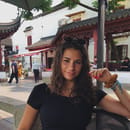We like to think the days of Columbus are safe in the past. Tongue in cheek, we nervously hope no one brings up his atrocities, no one mentions how we still benefit from it, and no one actively seeks restitution for the genocide permeated through colonization that continues to disproportionately profit white people. We don’t know what we would say, and in a way that is understandable. No one can control the actions of their ancestors, I know I certainly cannot. If it were happening now, we say, we would never allow it to go that far. Luckily (or rather unluckily) it seems as though we have an opportunity to prove how faithful we are to being “woke”. It seems that history, in its perpetual tendency, has begun to repeat itself. The creation of the Arctic Council in 1996 marks a new era of colonization in one of the last remaining sanctuaries for indigenous peoples. By pushing them farther up the fringes of the globe to make room for big oil interests under the guise of industrialization, the member nations reaffirm the problematic intersection of capitalism and feigned environmentalism.
So what exactly is the Arctic Council? According to them, it is “the leading intergovernmental forum promoting cooperation, coordination, and interaction among the Arctic States, Arctic indigenous communities and other Arctic inhabitants on common Arctic issues, in particular on issues of sustainable development and environmental protection in the Arctic.” It consists of eight permanent member states: the US, Canada, Denmark, Russia, Finland, Iceland, Norway, and Sweden. It allows for observer status of various other states which do not hold territory in the arctic circle and includes the permanent participation of six groups of indigenous communities that live in the arctic.
How nice, right? They allow for collaboration with indigenous peoples on issues of sustainable development and environmental protection. That’s great! Except, what development? Last time I checked, I don’t believe the Inuit have a particular desire to build skyscrapers in the tundra. Of course, the member states mean mining and oil. They mean exploiting the land upon which people built their lives on, in order to get an additional profit. Well, isn’t the council supposed to mitigate that? Isn’t that the point? Or else, what’s the point of allowing the permanent participation of six groups of indigenous peoples? The website would have it seem like this institution exists as a forum for equal representation to work to prevent the exploitation of tribal people by geographically close nations. It seems as though it should serve as a democratic arena of justice, created for the protection of the land and the complex cultures of the millions of indigenous residents of the Arctic. But how is that possible if only the member nations get a vote? This means that at most, the eight member nations have to consult the indigenous representatives on proposals. Without being allowed a vote on their own territory, the six permanent participants are left voiceless. This is a systematic violation of the UN mandate on human rights, and of democracy itself. All people have a right to take part in the government of their own land. All people, not just citizens in developed countries. How can the United States preach democracy internationally while suppressing the indigenous voices within its own territory? Again, might I add.
So, to recap, in 1492 Columbus sailed the ocean blue. Then, he murdered, raped, and exiled the people that were already living there, pushing the survivors to the fringes of the continent and now, these peoples face the threat of an international coalition of states collaborating on development on their homes to economically benefit already wealthy developed nations at the cost of the last remaining shred of sovereignty allotted to entire civilizations of people. How lovely.
So how does this manifest itself? It shows itself through polite, diplomatic language. Basically, B.S. The Arctic Council’s Sustainable Development Working Group (SDWG) allows for “Opportunities for Indigenous Peoples‘ and Northern Communities‘ Involvement and Input in the Mine Development and Construction”. Once again, as already seen in the mandate of this institution, Indigenous peoples’ are not given any real power, despite all of the actions taken by this council primarily impacting them. They are allowed “input”, which isn’t that helpful if your opinion is going to be bulldozed anyway, they are given opportunities for “involvement” which is distributed through a eurocentric view of giving jobs and money to people whose societies, historically, may have developed independently through a different financial system, such as barter or hunting and gathering. Why do these eight member states think they have the right to impose their ways of life on people already forced to desperately cling on to the last remains of their native culture allotted to them. Who gave the power for Canada and the United States and Sweden to impose capitalism on those who never asked nor wanted it. The concept of historical particularism entails that their cultures are equally as complex as our western one, yet we continue with a colonialistic mindset which we use to justify the subjugation and exploitation of cultures deemed as inferior based on nothing more than entrenched racism and an unwarranted overinflated ego.
That absolutely sucks, so what can we do? Vote. We can call attention to this. The United States is part of this problem and we the people have the right to change it. So email your representative! Tweet at your senators, spread awareness about this issue. Personally, I think I will be going the route of sending an envelope full of glitter to their headquarters (at Fram Centre, Postboks 6606 Langnes, 9296 Tromsø, Norway), but that’s just me. You can also spam their email at acs@arctic-council.org. But don’t forget that now is your chance to actually change history, don’t let it repeat itself. Please fight for the right of Native people to have a vote in a council on their own land. Please.



